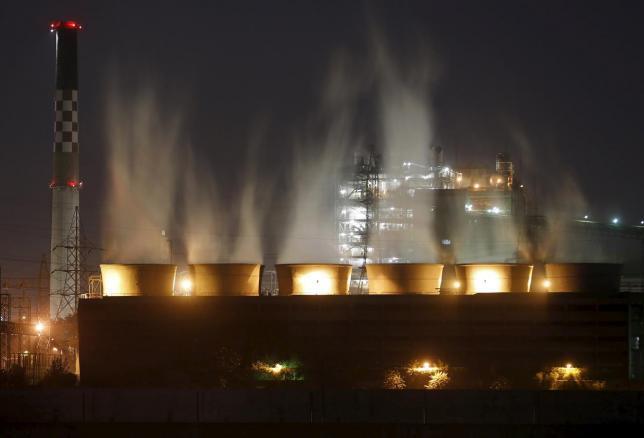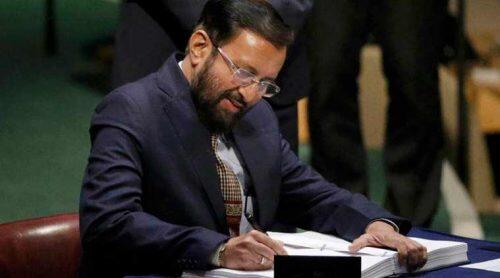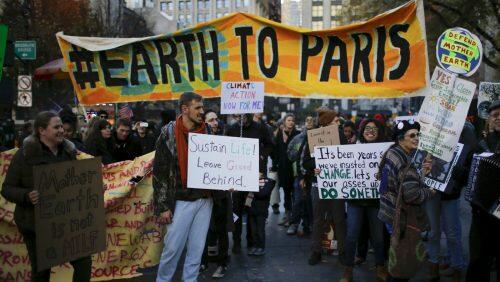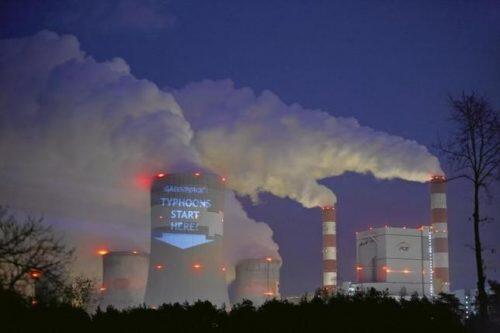The Paris Agreement on Climate Change which was signed by many countries around the world a few days ago is not just any news that passes without staying updated on what the countries are doing to implement it.
Following up with the status of each country on Climate change, and especially countries that signed the Paris Agreement, we chose to start with India. How will this country implement the agreement?
Indian Union Minister of State for Environment, Forests and Climate Change Prakash Javadekar signs the Paris Agreement on climate change at the United Nations Headquarters New York (Reuters)
Entry Into Early Force?
The Environment Minister Of India Prakash Javadekar said at the Major Economies Forum Meeting on Sunday that “A debate about early entry into force of the Paris Agreement is unfortunate”, adding that “Early ratification can be understood, but it will take time as per the national processes of approval.”
Protest in India for Climate Action. (Reuters/Eduardo Munoz)
“We should not make haste because Paris Agreement is to be implemented post 2020. There is enough time for ratification and all countries should be allowed to follow their national processes,” he said.
Pre-2020 Actions
“The Paris agreement is a historical achievement for mankind. All countries should implement it in letter and spirit. After signing of Paris agreement, the developed world needs to immediately ratify the Kyoto Protocol second commitment period and should present enhanced pre-2020 actions,” he said.
The minister also urged developed nations to announce their “enhanced” pre-2020 climate action plans and undertake the “urgent” task of mobilizing USD 100 billion, lack of which will hamper the implementation of nationally determined contributions of developing countries.
If there is political will, there is a way
“The plan to work for the first meeting of Ad hoc group on Paris Agreement (APA) and additional works by Subsidiary Body for Implementation and Subsidiary Body for Scientific and Technological Advice (SBI/SBSTA)…should be prepared in consultation with all stake holders as issues covered under these bodes have a direct bearing on the Provisions of the Paris Agreement. There is a need for coherence between COP, APA, SBI, SBSTA and other institutions,” he said.
Observing that India has led from the front as far as pre-2020 action is concerned, he said that though it is not mandated to take pre-2020 actions as per Kyoto Protocol, the government led by Prime Minister Narendra Modi has showcased to the world that if there is political will, there is a way, India Times reported.
“India has shown its leadership by action. It is now actions of developed countries which will be watched by the world against the backdrop of India’s proactive achievements,” he said.
A slogan is projected by Greenpeace activists on a cooling tower of Belchatow Power Station, Europe’s largest coal-fired power plant, in Belchatow November 9, 2013. REUTERS/Tomasz Stanczak/Agencja Gazeta
Ratification and Cutting Greenhouse Gas Emissions
In India, the approval of the Parliament will not be required for the government to ratify the Paris Agreement. A Cabinet decision to this effect would be enough.
India’s estimate of its share of global greenhouse gas emissions submitted to the UN for the Paris treaty is 4.10 per cent, but it faces a double jeopardy: of having to emit large volumes of carbon dioxide to achieve growth, while preparing to adapt to the destructive effects of intense weather events, such as droughts and floods, linked to climate change.
Currently, the top greenhouse emitters are: China 20.09%, USA 17.89%, Russia 7.53%, India 4.10%, Japan 3.79%, Germany 2.56%, Brazil 2.48%, and Canada 1.95%. In fact, they are responsible for 60.39% of the world total carbon emissions.














